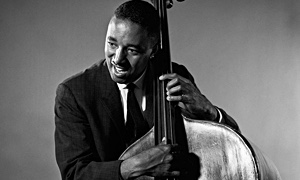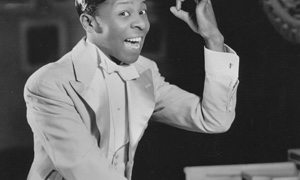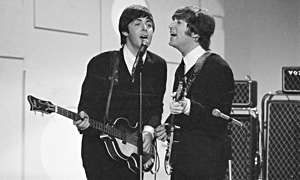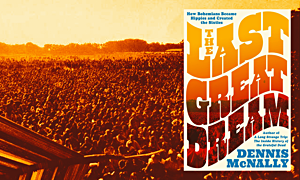Home » Jazz Articles » Book Review » Rabbit's Blues: The Life and Music of Johnny Hodges
Rabbit's Blues: The Life and Music of Johnny Hodges
 Rabbit's Blues: The Life and Music of Johnny Hodges
Rabbit's Blues: The Life and Music of Johnny Hodges Con Chapman
218
ISBN: #978-0-19-0655390-3
Oxford University Press
2019
It's difficult to fathom the existence of a jazz musician in the position of a featured soloist of an internationally recognized large ensemble, year in and year out, for decades, making a good living and deriving a fair amount of artistic satisfaction from this endeavor, as well as consistently receiving kudos from peers, critics and fans alike. From the perspective of the 21st century, when the preponderance of jazzmen and women are products of universities and music conservatories, it's equally hard to comprehend how anyone could reach such an exalted status with almost no formal instruction, questionable sight reading skills, not to mention a willingness to—stylistically speaking—stay on a particular course, even as the winds of musical change constantly blow around him.
In less than two hundred pages of text, Con Chapman fashions a meticulously researched, lucid and sympathetic account of a jazzman who fits all of these specifications: Alto and soprano saxophonist

Johnny Hodges
saxophone, alto1907 - 1970

Duke Ellington
piano1899 - 1974
The book's core consists of themes that provide ample food for thought and remind the reader that history isn't bound to a singular interpretation of events and ideas. A handful of major topics include the unique tone produced by Hodges, the effect it had on audiences, and how it compared to his successors

Charlie Parker
saxophone, alto1920 - 1955

John Coltrane
saxophone1926 - 1967

Sidney Bechet
saxophone, soprano1897 - 1959

Louis Armstrong
trumpet and vocals1901 - 1971

Billy Strayhorn
piano1915 - 1967
In addition to juggling the particulars of specific themes and deftly advancing the narrative Chapman provides brief, chapter long detours—such as Hodges's relationship with his wives and children, his competition on the alto sax in the pre-bebop years, and his tastes in food and drink. Under the author's capable direction, a selection of some of the particulars of Hodges's everyday existence easily mingles with substantive matters of jazz practice.
Because the swift pace of changes in jazz fashion often obscure, marginalize and cast off the contributions of practitioners of earlier, foundational styles, Chapman does the music a service by shedding light on the significance of a musician who is rapidly fading from view. His thoughtful, nuanced account of Hodges's skills, artistry and methods doesn't resemble the bluster and narrow range of ideas of a zealous fan with an axe to grind. Integrating brief, illuminating passages from Cynthia Ozick, T.S. Eliot,

Gerry Mulligan
saxophone, baritone1927 - 1996
Tags
Book Reviews
David A. Orthmann
Oxford University Press
Johnny Hodges
duke ellington
Charlie Parker
John Coltrane
Sidney Bechet
Louis Armstrong
Billy Strayhorn
Gerry Mulligan
Comments
PREVIOUS / NEXT
Support All About Jazz
 All About Jazz has been a pillar of jazz since 1995, championing it as an art form and, more importantly, supporting the musicians who make it. Our enduring commitment has made "AAJ" one of the most culturally important websites of its kind, read by hundreds of thousands of fans, musicians and industry figures every month.
All About Jazz has been a pillar of jazz since 1995, championing it as an art form and, more importantly, supporting the musicians who make it. Our enduring commitment has made "AAJ" one of the most culturally important websites of its kind, read by hundreds of thousands of fans, musicians and industry figures every month.







 Buy Now
Buy Now





















